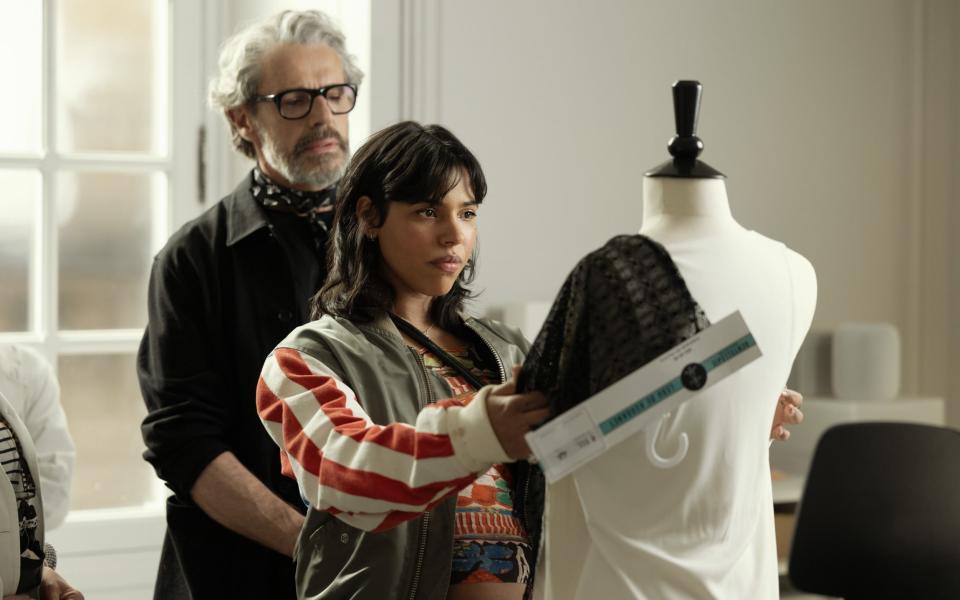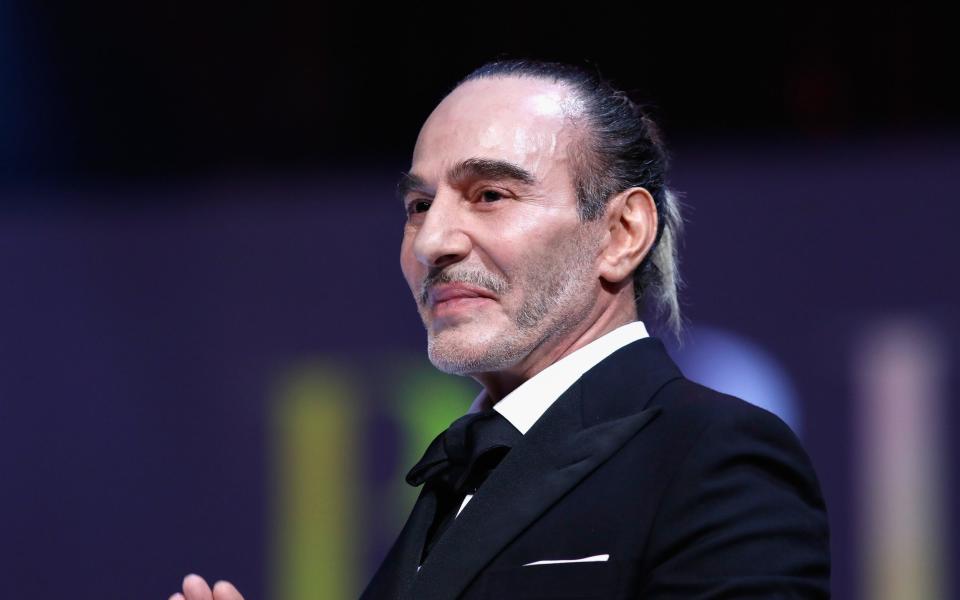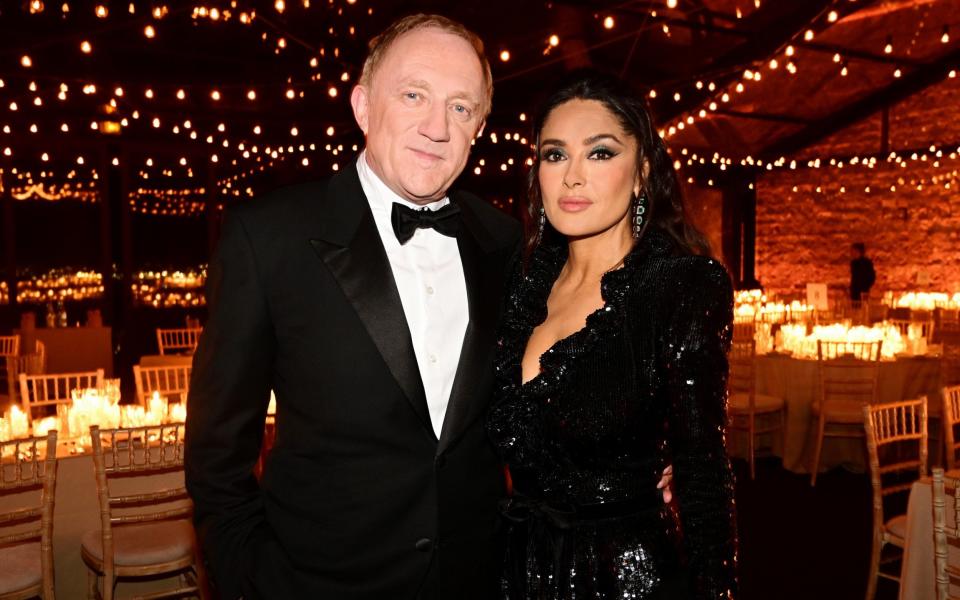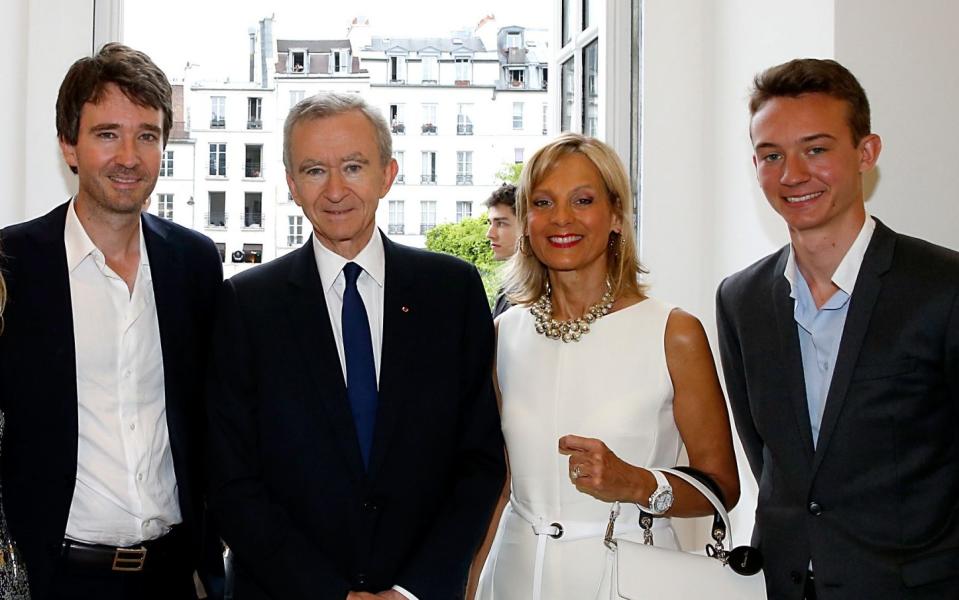The real-life dramas behind La Maison, fashion’s new Succession-style series

The fashion world has always held a particular fascination, with its cast of eccentric characters and sense of high drama. Yet 2024 has been a bumper year for sartorial intrigue playing out on the small screen, with myriad documentaries, biopics and television series seeking to lift the lid on the inner workings of the industry. From Disney+’s In Vogue: The 90s and Cristóbal Balenciaga, to Apple TV’s The Supermodels and The New Look, it seems that every few weeks there’s another fashion-centric series to binge.
Next up is La Maison, a 10-part series coming to Apple TV this weekend, right in the middle of fashion month. Dubbed France’s answer to Succession, it follows an inter-familial power struggle at the helm of a fictional French fashion house, Ledu, which is thrown into disarray when its designer of 40 years, Vincent Ledu (played by Lambert Wilson), is recorded making racist slurs.
Adding to the family drama is the fact that Vincent’s estranged brother, Victor (Pierre Deladonchamps) is married to the daughter of Ledu’s archrivals, Rovel, while his mother-in-law, Diane (Carole Bouquet), is also looking to acquire Ledu in an act of revenge. Meanwhile, Vincent’s former muse, Perle (Amira Casar) has installed Paloma Castel (Zita Hanrot) in the top seat – an up-and-coming sustainable designer in the vein of Marine Serre, Clara Daguin and Victor Weinsanto – much to the family’s distaste.

It’s unsurprising that fashion makes for such gripping televisual and cinematic fodder, from the machinations of American Vogue and Anna Wintour in The Devil Wears Prada to the murderous plotting of the Gucci family in House of Gucci. After all, as well as being incredibly glamorous (and therefore visually pleasing) there’s also a lot of money involved, which means high drama.
“The fashion industry has always been a point of fascination in popular culture,” says Vogue Business’s Lucy Maguire. “It’s exclusive, it’s glamorous, it’s celebrity-adjacent and it is constantly evolving. And even now, when so much of the industry is captured and shared through people’s phones, audiences are still curious to see what happens behind closed doors. Often the more fantastical the depictions, the more buzz they generate.”
“Fashion has long been a rarefied and closed-off world with only insights here and there, but that changed with the advent of social media, the prevalence of which has likely only served to increase people’s interest in it and appetite for it as now they can get it on tap,” agrees freelance fashion editor, Jessica Bumpus. “Everyone loves a good story and fashion is full of myths, legends, so the story goes-type anecdotes. In a very online world you had to be there in real life to know.”
Those in the know will inevitably draw parallels between the show’s protagonists and some of fashion’s key players. “We approached it with the same level of care as a couture house does a collection,” showrunner Valentine Milville told WWD. “We tried to create real identities for the brands and houses represented.”
For starters, Vincent’s downfall feels reminiscent of designer John Galliano’s notorious anti-semitic rants in October 2010 and February 2011, which were recorded by onlookers and shared widely with the media, resulting in his exit from Dior.

Then there’s the scheming between the Ledu family and their rivals the Rovels over who has the biggest fashion empire, which brings to mind fashion’s real-life duelling titans, Bernard Arnault and François-Henri Pinault. While the former’s LVMH stable includes 75 storied fashion, jewellery, cosmetics and beverage brands, including Christian Dior and Louis Vuitton, the latter’s Kering Group has a handful of top houses, the most famous being Gucci, Balenciaga and Saint Laurent.

Their rivalry has played out over the decades, but began in earnest in the 1990s, after Arnault discreetly bought a 34 per cent stake in the fashion house Gucci through slowly increasing his shares. Unhappy at this outcome, Gucci’s then designer Tom Ford turned to Pinault, who helped stage a coup d’etat, effectively buying majority ownership and causing Arnault’s share price to drop rapidly in the process.

Since then, a fashion cold war has been waged between the two, with tensions flaring every now and then, including when Kering acquired a 51 per cent stake in Alexander McQueen’s eponymous brand, when he was still at the helm of Givenchy, an LVMH stablemate. Similar financial wranglings occurred over Fendi in the late 1990s and early 2000s, when LVMH teamed up with Prada to stop Kering having full control of the brand. Today, LVMH dwarfs the Kering Group, turning over $93 billion a year in profit compared with $21 billion, with Arnault one of the world’s top five richest men.
The actress Carole Bouquet plays Diane Rovel, the head of Ledu’s rival, with clear parallels with Arnault – her character is Europe’s wealthiest woman, and is referred to as a “she-wolf in a suit”, which mimics Arnault’s real-life nickname, “the wolf in cashmere”.
Meanwhile Lambert Wilson, who plays Vincent Ledu, drew on Hubert de Givenchy as his inspiration, telling WWD: “In the series, there’s many clashes: generational clashes and social clashes. He’s an aristocrat, and it makes a very big difference. They know they have power. I thought of Hubert de Givenchy, who seemed to be the epitome of all that.”

